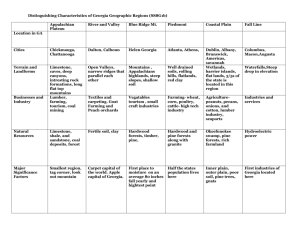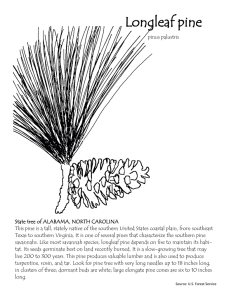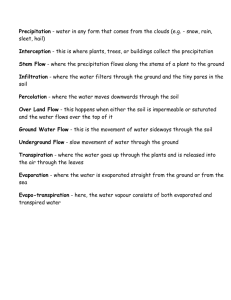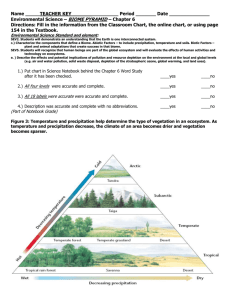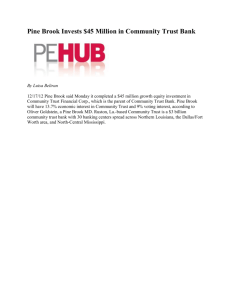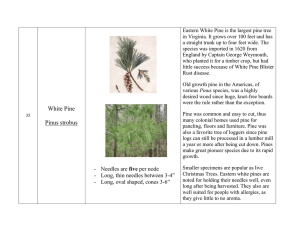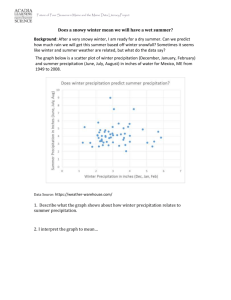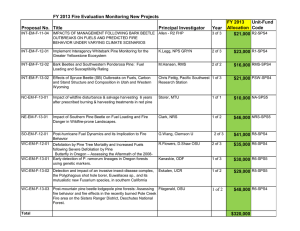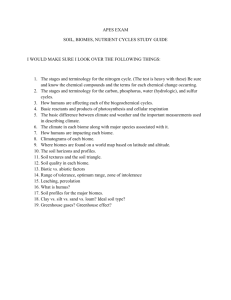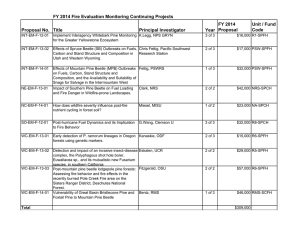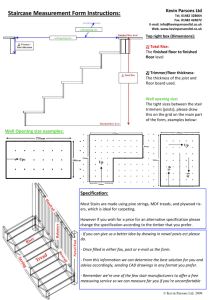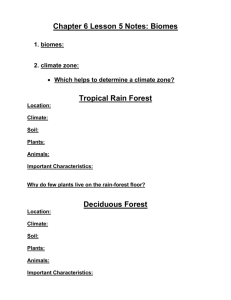Boreal Forest (Taiga) Biome: Plants, Animals, Climate
advertisement
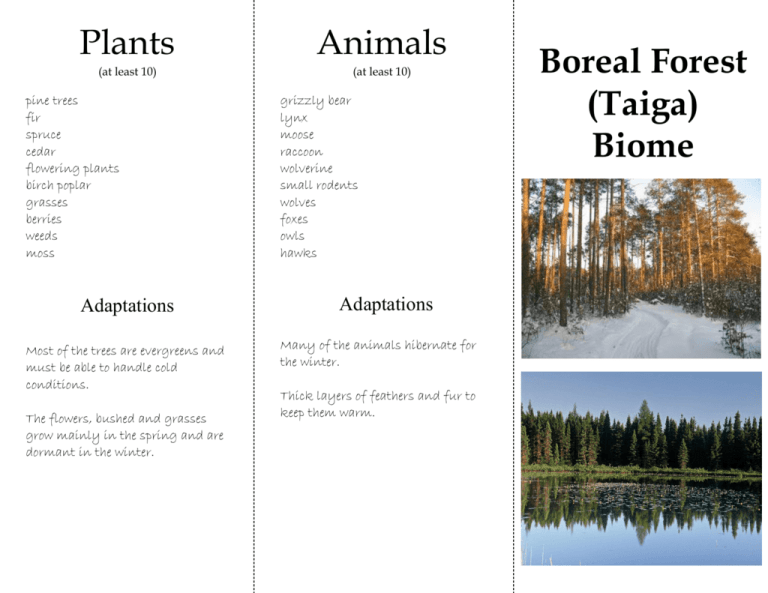
Plants Animals (at least 10) (at least 10) pine trees fir spruce cedar flowering plants birch poplar grasses berries weeds moss Adaptations Most of the trees are evergreens and must be able to handle cold conditions. The flowers, bushed and grasses grow mainly in the spring and are dormant in the winter. grizzly bear lynx moose raccoon wolverine small rodents wolves foxes owls hawks Adaptations Many of the animals hibernate for the winter. Thick layers of feathers and fur to keep them warm. Boreal Forest (Taiga) Biome Interactions biotic: Animals have to deal with cold temperatures and high amounts of UV radiation. The pine cones provide a year round food source for many of the animals. Geography location: 8 - 80 inches (20-200 cm) description: temperature range: Largest land biome. Dense evergreen forests. -58 to 86© F (-50 to 30©C) climate: The pine dead pine needles create a thick, insulating layer on the ground. some areas are permafrost (stay frozen all year long) abiotic: soil stays moist, rich soil that forms slowly In the summer, the area is tilted toward the sun and has very long days and short nights. Receives enough precipitation to support large forests. precipitation amount per year: Northern areas of North America, Europe, and Asia soil type: The Earth is tilted away from the sun in the winter and receives very little sunlight. Climate very cold, windy, wet
